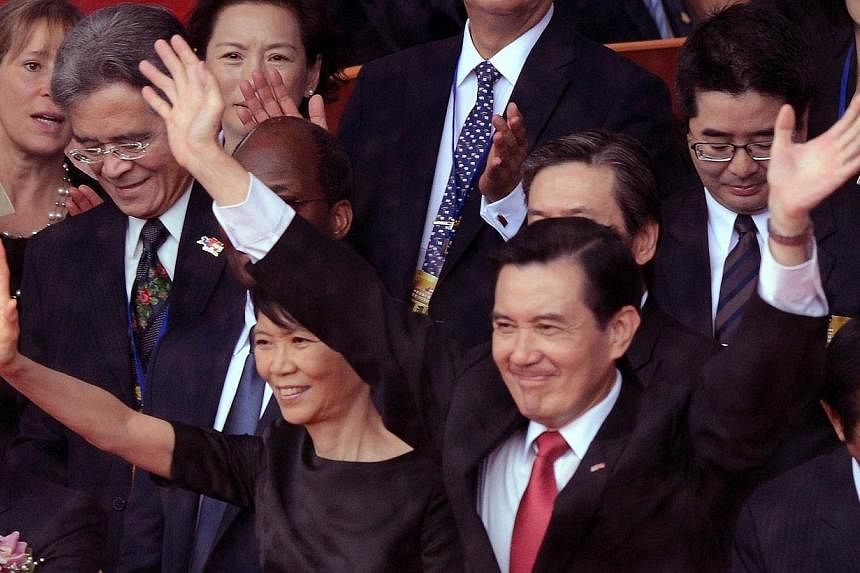TAIPEI (AFP) - Taiwan's President Ma Ying-jeou on Friday called on Beijing to "let some people go democratic first" as he expressed support for protesters who have paralysed parts of Hong Kong for nearly two weeks.
Taiwan has been watching closely the events in Hong Kong, where democracy activists are planning a fresh show of force on Friday evening after talks with the city's government collapsed, deepening the political crisis in the Asian financial hub.
Ma, in a speech marking Taiwan's National Day, urged Beijing to "convert a crisis into opportunity" by fulfilling its promise to grant civil liberties in Hong Kong when former colonial power Britain handed the city back in 1997.
"Thirty years ago, when Deng Xiaoping was pushing for reform and opening up in the mainland, he famously proposed letting some people get rich first. So why couldn't they do the same thing in Hong Kong, and let some people go democratic first?"
Ma said that in so doing, "China would simply be making good on a pledge made 17 years ago, when they said that for 50 years they would allow rule of Hong Kong by the people of Hong Kong, a high degree of autonomy, and election of the chief executive through universal suffrage".
This would definitely be a "win-win scenario" for both China and Hong Kong, as well as a huge boost for the development of relations between Taipei and Beijing, Ma added.
Taiwan in particular is concerned about the situation in Hong Kong, as China wants to reunite the island under a "one country, two systems" deal similar to Hong Kong.
Ma has sought to boost ties with China since he took office in 2008, but has rejected reunification under a Hong Kong-style arrangement. He recently renewed the rejection after Chinese President Xi Jinping told a visiting Taiwanese delegation that "one country, two systems" was the best way to realise reunification. In Friday's speech,
Ma said that "now is the most appropriate time" for China to move toward constitutional democracy, as the mainland experiences rapid economic growth and its people lead affluent lives.
"Now that the 1.3 billion people on the mainland have become moderately wealthy, they will of course wish to enjoy greater democracy and rule of law. Such a desire has never been a monopoly of the West, but is the right of all humankind." China still considers Taiwan part of its territory awaiting reunification, by force if necessary, even though the island has ruled itself since splitting from the mainland in 1949 at the end of a civil war.

